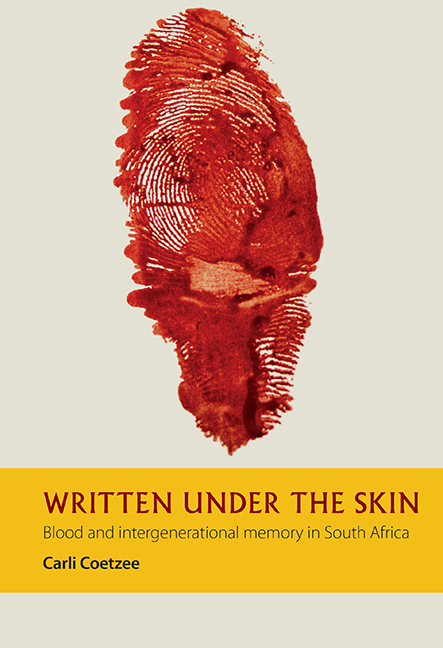Summary
The term ‘intergenerational’ in the title of this book refers in the first place to the conventional way in which the transmission of knowledge and memory is understood, from an older to a younger generation. The argument of this book is that intergenerational conversations and collaborations do not only result in such vertical transmission from elders to younger ones, but that the gains and transfers are instead distributed up and down the bloodlines in a mutually interactive generation and regeneration of knowledge. The book is inspired by the incisive and critical ways in which a younger generation of scholars (some of whom identify as #Fallists) have redefined literary and cultural studies, and by their radical demands about how the very terms of knowledge production must be debated and thereby regenerated.
The method outlined here is intended as a resource for the work to come, which will be to redesign the curriculum and reassess what will be handed on to the next generation of students and readers. My generation of teachers and readers cannot claim to have the answers, but we shall be there to watch as the questions are reformulated by younger generations, who will shape the future and debate the terms of our disciplines anew. The tropes through which South Africa has often been read (transformation, emergence, entanglement, reconciliation, diagnostically in search of a cure) are replaced in the argument of this book by vigilant, careful and ethical reading practices that break the skin to extract history-rich bloods through which to interpret the present. This book wishes to challenge the discourses of newness, unburdened ‘born-free’ birth and emergence, now generally held to be inadequate descriptors of those born after South Africa's transition to democracy in 1994.
The careful and caring protocols around blood testing and the meticulous work of reading blood are productive as a parallel method for that of reading South African texts. These ethical and careful protocols include questions about why one might wish to break the skin to extract the blood in the first place, for whose benefit the blood is extracted, and where the bloods will go.
- Type
- Chapter
- Information
- Written under the SkinBlood and Intergenerational Memory in South Africa, pp. ix - xiiPublisher: Boydell & BrewerPrint publication year: 2019

